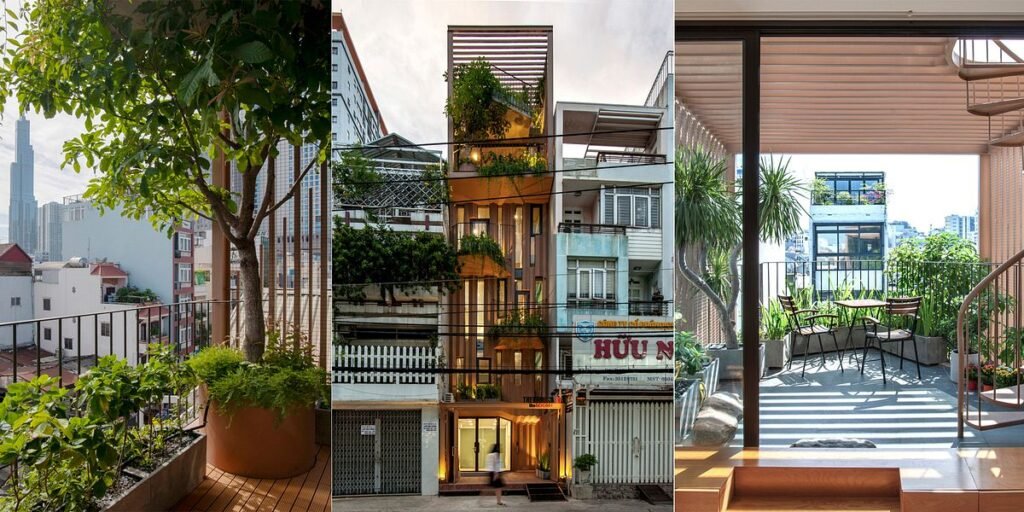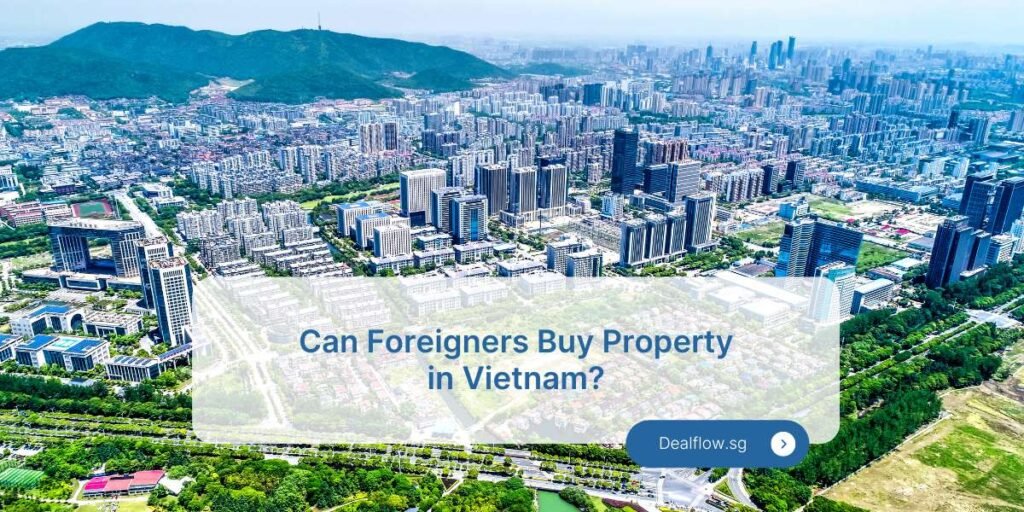
Many foreign investors are eyeing Vietnam’s real estate market. But the big question is simple: can foreigners buy property in Vietnam? Rules are not the same for everyone. Some can own a home; others face limits.
This guide explains who can buy, what they can own, and for how long. It also shows the steps, the risks, and why many still choose to invest in Vietnam’s growing property market. Keep reading!
Understanding Vietnam’s Housing and Land Laws for Foreign Buyers

1.Vietnam’s housing and land laws for foreigners
Can foreigners buy property in Vietnam? Vietnam allows foreign individuals and organizations to purchase residential property.
Laws passed in August 2024 (Housing Law 2023) and the amended Land Law, effective January 1, 2025, now provide clear legal ground.
Foreigners can own the structure (home or condo) but cannot own the land. They hold land-use rights via long‑term leases instead.
Foreign ownership limits and duration
Foreigners may own up to 30% of units in a single condominium building and up to 250 landed houses per ward‑equivalent area (around 10,000 people). The ownership term is 50 years under a leasehold, renewable once under the latest Land Law.
Under the Housing Law 2023, foreigners may extend their stay under certain conditions. Those married to Vietnamese citizens may obtain indefinite ownership rights.
Legal framework and recent updates
Many laws govern foreign property rights in Vietnam, but these are the main ones foreigners should consider:
- Housing Law 2023 (effective Aug 2024): allows foreign purchase, inheritance, or gift of residential housing, subject to quotas.
- Land Law (amended 2024/2025): clarifies leasehold terms and includes overseas Vietnamese in expanded rights. It allows flexible lease payment options and limits arbitrary land recovery by the state.
- Decree 99/2015/ND‑CP (still applies): sets ownership caps: 30% for apartments, 10% for landed housing in developments.
Recent reforms aim to improve transparency and investor protection. They allow easier resale or transfer of property and stricter disclosure by developers.
Who Can Buy Property in Vietnam as a Foreigner or Overseas Vietnamese?
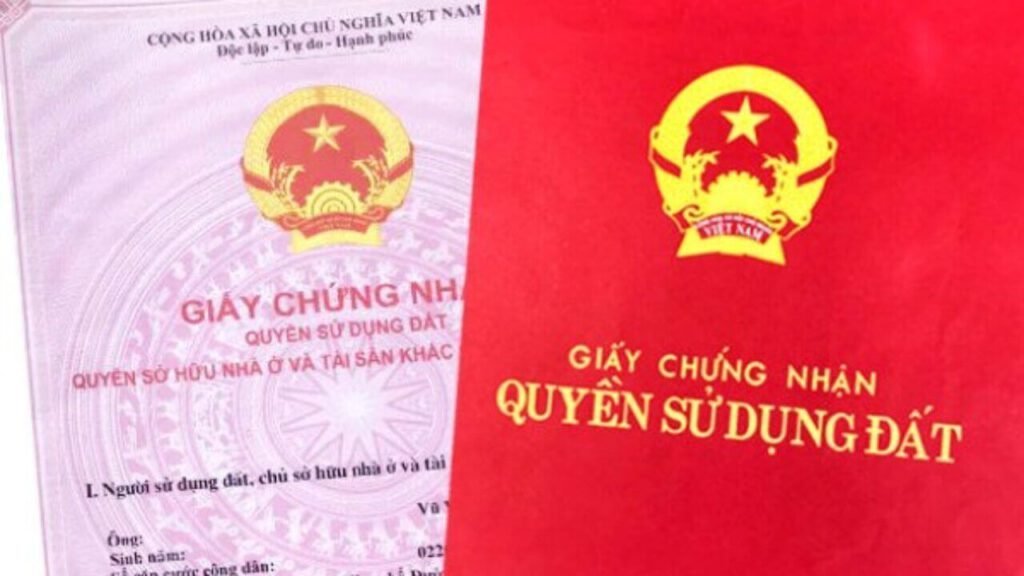
2. Eligibility requirements
Foreign individuals and overseas Vietnamese can buy housing in Vietnam. They must meet legal entry and eligibility rules.
Eligibility Requirements for Foreign Property Buyers in Vietnam
Foreign individuals must have a valid visa and entry stamp to enter Vietnam. They should not hold diplomatic or consular immunity. According to Article 17–18 of Housing Law 2023, they must have full legal capacity to act in civil transactions.
Managers in foreign companies in Vietnam or those with special skills may qualify. Marriage to a Vietnamese citizen can also allow property ownership with long‑term rights.
Foreigners face quotas. They may own up to 30% of units in one condominium. They may own up to 250 houses in an area equivalent to a ward (about 10,000 people).
Vietnam real estate regulations stipulate that ownership lasts up to 50 years. Extension is possible under Housing Law rules. Those married to Vietnamese or overseas Vietnamese gain stable, long‑term ownership akin to local citizens.
Differences Between Overseas Vietnamese and Foreign Nationals
According to the Law on Vietnamese Nationality, overseas Vietnamese includes two groups:
- Vietnamese citizens residing abroad
- Persons of Vietnamese origin who lost their Vietnamese nationality
Those who remain Vietnamese citizens abroad get full land use rights like domestic citizens. They may own property and land use rights directly under the Land Law 2024 (effective January 1, 2025).
Those of Vietnamese origin without nationality can still own housing, but their land rights remain under the rules for overseas Vietnamese. Decree 95/2024/ND‑CP stated that they must show documents of origin and entry stamps at the time of purchase.
Foreign nationals get fewer rights. They may buy housing only in commercial projects. They cannot own land. Quotas limit ownership terms. They need a valid visa entry and must meet Housing Law conditions.
What Types of Property Can Foreigners Buy in Vietnam in 2025?
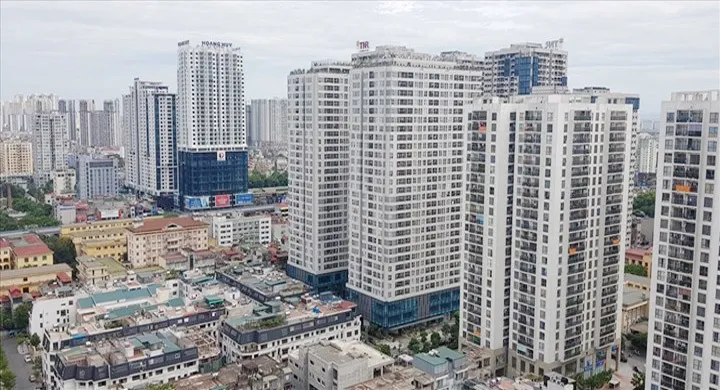
3. Types of property foreigners can buy in Vietnam
Foreigners may buy specific property types under Vietnam’s new laws in 2025. They can own apartments or houses in approved projects. Land remains state‑owned and not available for foreign purchase.
Apartments in Commercial Housing Projects
Foreign individuals and foreign companies can buy apartments (condominiums) in commercial housing projects. They cannot own the land. They only own the unit. Laws from 2025 confirm this rule.
Foreign ownership in one building maxes out at 30% of total units . The leasehold period is 50 years, renewable once. The Housing Law 2023 and the new Land Law brought these rules into effect in August 2024 and January 2025.
Foreign buyers can purchase new builds or resale housing from other foreigners or overseas Vietnamese. They must check that the project is allowed for sale to foreign buyers. Developers or the government must publish a list of approved projects.
Ownership of Landed Houses by Foreigners in Vietnam
Foreigners may buy landed houses such as villas or townhouses. These must be part of commercial housing development projects. They may be new builds or resold units from eligible sellers .
Foreign ownership is limited. A foreign individual may own at most 250 houses in an area equivalent to a ward (~10,000 people). Landed house ownership follows the same leasehold system: 50 years, renewable if conditions are met.
Buying landed houses must avoid areas classified as national defense or security zones. Local authorities should list such forbidden areas.
Land Use Rights and Restrictions for Foreigners
- Foreigners cannot own land in Vietnam. They can only lease land use rights. The Land Law and Housing Law work together .
- Leaseholds typically last 50 years. Renewal is possible under Housing Law conditions. Foreigners may extend once for another 50 years .
- Land may not be used for agricultural or forest purposes. Foreigners may not lease such land .
- Land contracts must be registered. Buyers receive a certificate, often called the “pink book.” This shows the rights to use land and own the house.
How Long Can Foreigners Own Property in Vietnam? Leasehold Terms Explained
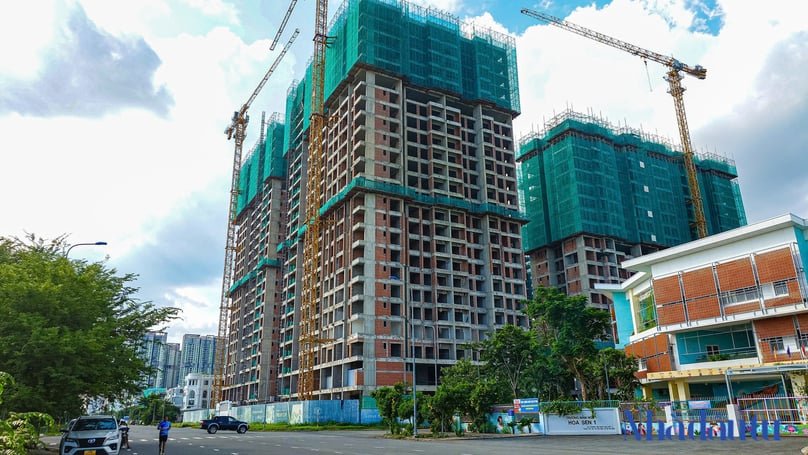
4. How long can foreigners own property in Vietnam
Foreigners may own property in Vietnam under leasehold terms. They cannot own land. They receive land‑use rights.
Vietnam’s Housing Law (amended 2025) and Land Law allow a maximum leasehold period of 50 years. Foreign individuals can renew it once for another 50 years if they meet the conditions.
Foreign companies get lease terms tied to their investment certificate. That period starts when the ownership certificate is issued. Extensions match the term in the certificate.
Lease extension requests go to provincial authorities three months before expiry. Officials review documentation and issue approval within 30 days if the rules are met.
Foreign owners may sell, rent, or bequeath property during the leasehold term. If not extended or sold before expiry, the land-use rights revert to the state.
Step-by-Step Guide to Buying Property in Vietnam as a Foreigner
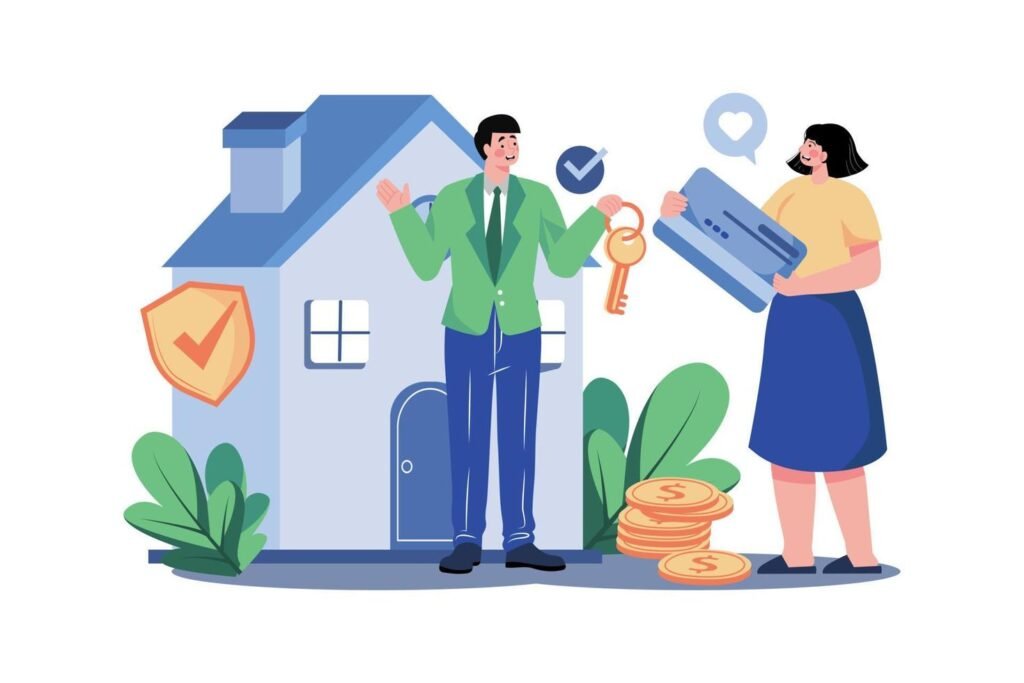
5. Buy property in Vietnam as a foreigner
Buying property in Vietnam as a foreigner requires clear steps. The process differs from many Western countries. So, foreigners should know the right path to avoid mistakes and legal trouble.
Step 1: Hire a Qualified Lawyer
Buying property in Vietnam works very differently from Western markets. Language and legal culture also differ. Hiring a lawyer makes the process clear.
A bilingual lawyer with experience in Vietnamese property law and local market practices protects buyer interests. That makes the deal safer.
Step 2: Arrange Your Finances
Decide on a budget. Clarify how to fund the purchase. That might involve cash, a mortgage from a Vietnamese bank, or refinancing assets abroad. Build a financial plan that covers all costs.
Define your investment goals. Choose target locations, property types (apartment or landed house), and price range.
Step 3. Find and View Properties
Search using reliable property portals or licensed local agents. Consider areas with strong growth like Hanoi, Ho Chi Minh City, Nha Trang, or Da Nang.
Arrange property visits quickly. Check the neighborhood on foot. Note amenities, transport access, and investment potential. You can select a good fit via that insight.
Step 4: Conduct Thorough Due Diligence
Before making an offer, check the property’s legal status carefully. Ask your lawyer to verify these:
- The property has a valid Land Use Rights Certificate (LURC), known as the “pink book.”
- Ownership history to ensure no disputes.
- The building meets local construction rules. A separate building inspection may be needed.
Doing this protects you from buying a property with problems.
Step 5: Submit an Offer and Sign a Reservation Contract
You can instruct the lawyer to submit a written offer. You and the seller negotiate price, dates, and steps. Once terms align, you sign a reservation letter.
You usually pay a deposit to secure the home. That deposit holds the unit while the sale moves forward. Trusted sources note this deposit is often 1–5% of the price.
Step 6. Sign (SPA)
You should sign the formal SPA ( Sales and Purchase Agreement) before a notary or authorized official. This contract states the price, payment schedule, and responsibilities for both sides. Signing the SPA triggers legal obligations. Reports confirm that notary signing is mandatory for foreign home buyers.
Step 7: Make Payments According to Schedule
Payment often follows a schedule. You pay in installments. For example, you might pay 20% on SPA signing, another portion as building progresses, then the balance at handover.
You must check bank exchange rates if you send foreign currency. Your lawyer helps set up transfers. The payment structure adheres to Vietnamese banking and real estate regulations.
Step 8: Finalize the Purchase and Register Ownership
Deliver the last payment based on the schedule. Then update the Land Use Rights Certificate. The local land office issues a new Pink Book in your name or company name.
Once legal ownership shows your name, the transaction ends. Collect the keys and move in or rent out the property.
Extra Tips for a Secure Purchase
You should stay alert throughout the process when you buy property in Vietnam as a foreigner. Mistakes may cause delays or legal trouble.
If you don’t want bad things to happen, follow these típ:
- Check if the project is legal and approved.
- Pick a trusted developer with a clean record.
- Read all contracts slowly and ask your lawyer to explain unclear terms.
- Know all fees, taxes, and charges before paying.
- Make sure the land use certificate (Pink Book) is real and complete.
- Track every step of the transfer.
- Plan ahead in case problems or delays happen.
Benefits of Buying Real Estate in Vietnam for Foreigners
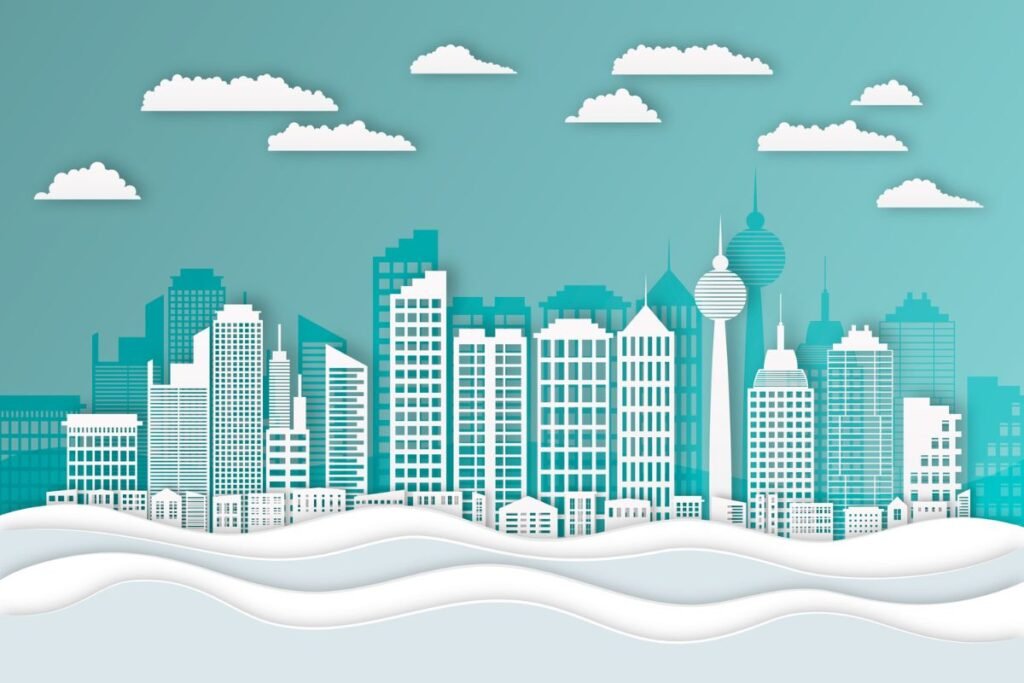
6. Why buy real estate in Vietnam
Foreign buyers gain many benefits from investing in Vietnam’s real estate.
Fast Economic Growth
Vietnam’s economy grew 7.09% in 2024 and continued to grow strongly into early 2025. Foreign direct investment (FDI) into real estate reached over $6.3 billion in 2024—a 19% jump from 2023. Rising incomes and demand make property values stronger. Buying now can yield good returns.
Affordable Prices and High Demand
Vietnam offers real estate at much lower prices than neighboring nations like Thailand or Singapore. Luxury apartment prices in Hanoi remain up to 50% less expensive than in those cities. Urban growth in cities like Hanoi and Ho Chi Minh has driven property demand upward. In Hanoi, apartment prices rose 22.3% in Q3 2024.
Friendly Laws and Investment Policies
Vietnam updated its real estate laws in 2024 and 2025. These moves made the rules clearer for foreign buyers. This includes limits on deposits and clear guidance on ownership and transfers. These updates build trust in cross‑border M&A and property deals.
Urbanization and Infrastructure Drive Demand
Cities like Da Nang, Hanoi, and Ho Chi Minh City see fast urban growth. Major new projects such as metro lines, industrial zones, and mixed-use precincts support this expansion. More people need homes, offices, shops, and warehouses.
Good Government Support for Foreigners
Authorities simplify approval steps for foreign investment and property deals. Developers get fast land allocation and clear project site plans. This trend helps foreign buyers act fast. They can also plan with confidence.
Common Risks Foreign Buyers Face in Vietnam’s Property Market
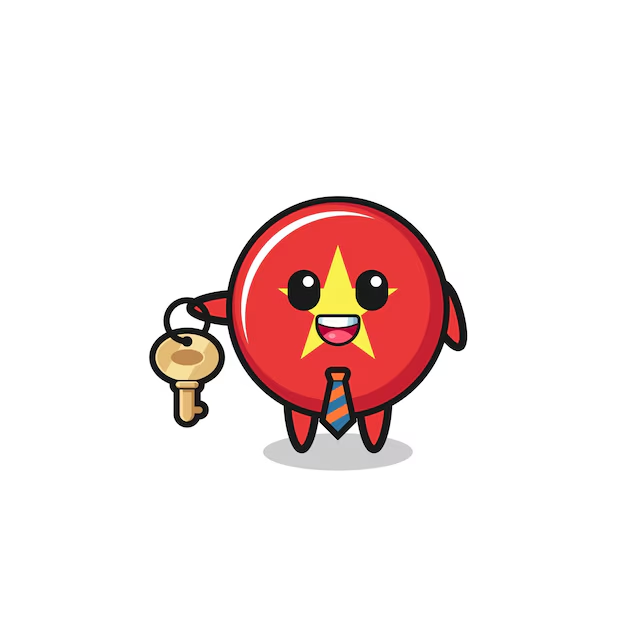
7. Common risks
Foreign buyers must stay alert. The market offers real opportunity, but risks remain.
Projects That Lack Legal Approvals
Some developers sell units before finalizing permits and technical plans. Buyers may end up with projects lacking complete approvals.
For this reason, you must always verify all legal documents up front. Ask for developer licenses and land-use approval.
If conditions remain unmet, consider cancelling or delaying the purchase. Secure refunds if possible.
Misunderstanding Property Use Rights
The stated function of a property can differ from the code. Buyers should confirm the use status.
In other words, you have to confirm if the unit is for residency, business, or mixed-use. Request official documentation showing how the property may be used.
This step prevents invalid usage or ownership disputes.
Buying Before Receiving the Ownership Certificate
Some foreign buyers sign contracts before they get the Land Use Rights Certificate (LURC) issued. This can block the transfer or sale later.
Therefore, you should always wait for a clear notice of certificate issuance. Also, monitor the handover of ownership rights with the land office.
Hidden Financial Charges and Fees
Contracts may list management and maintenance fees without clarity. Buyers may face surprise fees later.
The advice here is always to review the contract to identify all expenses. You must notice annual service charges, admin fees, and agency costs. Plus, budget carefully for these.
Transfer Charges
Transfer costs can include taxes, stamp duty, and notary fees. These vary by province. Hence, always clarify total transfer-related fees early. You must also plan cash flow to avoid shortfalls at handover time.
Vietnam Real Estate Prices and Market Trends in 2025

8. Vietnam real estate market trends 2025
Vietnam’s real estate market shows strong momentum in 2025. Foreign direct investment (FDI) into real estate jumped by 46% in Q1 alone, reaching about $2.4 billion. Demand remains strong, but supply stays tight in housing, retail, and industrial sectors.
According to JLL Vietnam, in Hanoi, apartment prices rose 29.6% year‑on‑year. This hit an average of around $2,865 per sqm in Q1 2025. New supply in the capital climbed sharply compared to late 2024, though it remains limited.
In Ho Chi Minh City, apartment sales dipped slightly in late 2024. Prices softened a bit. However, a revised land price framework and resumed new project launches point to a steady recovery in 2025.
Industrial and logistics real estate remains buoyant. Leasing demand stays high. Vacancy rates stay low at top industrial zones.
Government reforms on housing, land, and real estate business laws have improved transparency and boosted investor trust. Those legal updates support long-term growth and attract foreign capital.
Readmore:
* Industries Attracting the Most M&A Activity in Vietnam
* M&A in Vietnam: A Foreigner’s Guide to Legal & Regulatory Frameworks
* Top 5 M&A Deals in Vietnam Led by Foreign Investors
FAQs
Can foreigners legally own land in Vietnam?
No. Foreigners cannot own land in Vietnam. They can lease land‑use rights for up to 50 years under the Land Law and Housing Law.
What is the maximum number of units a foreigner can own?
A foreign individual can own up to 30% of units in a single condominium. They may own up to 250 landed houses per area, which equals a ward (about 10,000 people).
Can a foreign lease be extended beyond 50 years?
Yes. Foreigners can renew a lease once for another 50 years if they meet eligibility criteria and comply with legal requirements.
Do foreigners married to Vietnamese have more ownership rights?
Yes. Foreigners married to Vietnamese citizens can have rights similar to local citizens. They may enjoy more stable long‑term ownership.
Which areas are restricted for foreign property purchases?
Foreign buyers cannot purchase housing in areas tied to national defense. These include border zones, islands, military zones, and locations around high‑level government offices.
The Bottom Line
So, can foreigners buy property in Vietnam? Yes, but with rules. Foreigners may own apartments or landed houses in approved projects, under 50-year leaseholds.
Vietnam’s updated laws make buying easier and clearer. Strong growth, affordable prices, and improved transparency attract more foreign buyers.
Want to invest? Learn the rules, follow each step, and work with experts to protect your deal.

